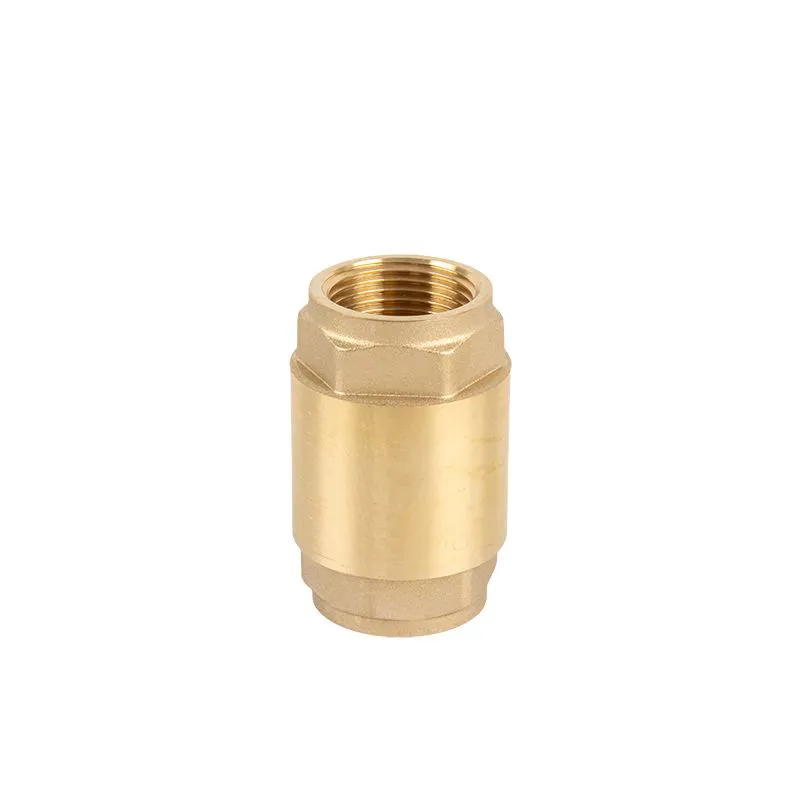Why Brass Check Valves Are the Preferred Choice for Plumbing and Industrial Applications
2024-08-09
Why Brass Check Valves Are the Preferred Choice for Plumbing and Industrial Applications
Introduction
When it comes to selecting valves for plumbing and industrial applications, the choice of material is critical. Brass check valves have become the preferred option for many professionals due to their exceptional properties. In this blog, we’ll explore why brass check valves are favored over other materials and how they contribute to the efficiency and safety of various systems.

The Importance of Check Valves in Fluid Systems
Check valves are designed to allow fluid to flow in one direction while preventing backflow, which can lead to contamination, pressure drops, and system failures. In plumbing and industrial systems, the reliability of check valves is paramount. The material used in the valve construction plays a significant role in determining its performance and longevity.
Why Brass is the Ideal Material for Check Valves
Brass check valves offer several advantages over valves made from other materials like plastic, stainless steel, or iron:
- Corrosion Resistance: Brass is highly resistant to corrosion, particularly in water systems. This makes brass check valves ideal for applications where the valve is exposed to moisture or chemicals.
- Thermal Conductivity: Brass has excellent thermal conductivity, which helps in managing temperature changes in fluid systems. This property is particularly beneficial in HVAC and industrial applications.
- Durability: The toughness of brass ensures that check valves can withstand high pressures and mechanical stress without deforming or wearing out quickly.
- Ease of Machining: Brass is relatively easy to machine, allowing for precise manufacturing of valve components. This results in better sealing and smoother operation.
- Cost-Effective: While brass valves may be more expensive than plastic alternatives, their longevity and low maintenance costs make them a more cost-effective choice in the long run.
Applications Where Brass Check Valves Excel
Brass check valves are well-suited for a variety of applications, thanks to their robust characteristics:
- Residential and Commercial Plumbing: Brass check valves are commonly used in water supply lines, preventing backflow that could contaminate potable water.
- Fire Sprinkler Systems: In fire protection systems, brass check valves ensure that water flows in the correct direction and that the system remains pressurized.
- HVAC Systems: These valves help maintain the flow of refrigerants and prevent backflow, which is crucial for the efficiency and safety of heating and cooling systems.
- Industrial Fluid Handling: Brass check valves are ideal for controlling the flow of various liquids and gases in industrial processes, from chemical manufacturing to oil and gas extraction.
Maintenance and Longevity of Brass Check Valves
One of the key reasons brass check valves are preferred is their low maintenance requirements:
- Minimal Wear and Tear: The durability of brass means that these valves experience less wear and tear over time, even in demanding environments.
- Resistance to Scaling: In water systems, brass check valves are less prone to scaling, ensuring consistent performance over years of use.
- Simple Inspection and Replacement: Should maintenance be necessary, the straightforward design of brass check valves makes inspection and replacement relatively easy, minimizing downtime.
Conclusion
Brass check valves are a top choice for plumbing and industrial applications due to their outstanding durability, corrosion resistance, and cost-effectiveness. Their ability to perform reliably under a wide range of conditions makes them an essential component in fluid control systems. Whether for residential plumbing, HVAC systems, or industrial processes, brass check valves provide peace of mind and long-lasting performance, making them a smart investment for professionals and homeowners alike.


